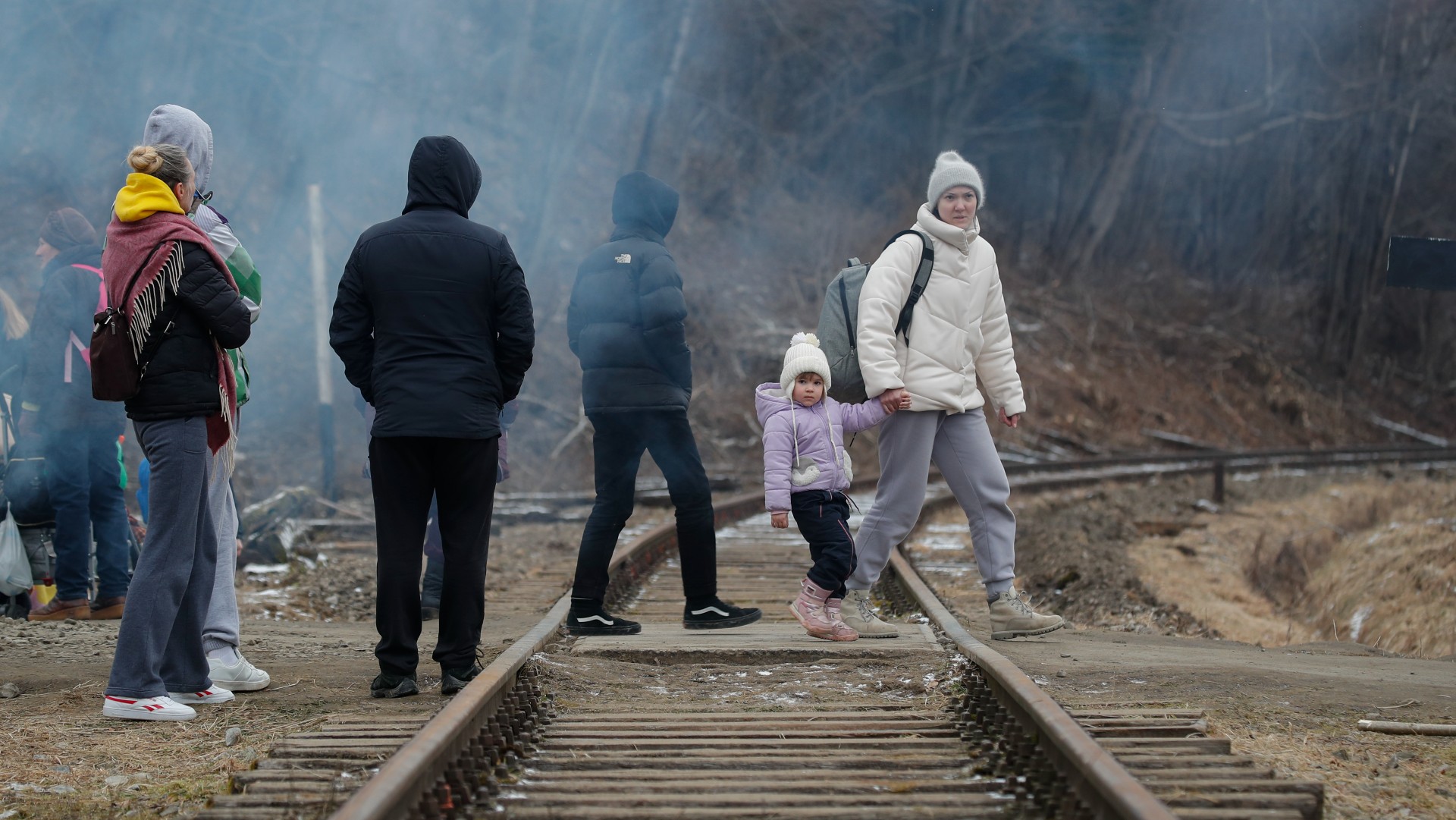How to talk to children about the Ukraine war
Tips on how to approach discussions about the conflict from The Week Junior’s Anna Bassi

A free daily email with the biggest news stories of the day – and the best features from TheWeek.com
You are now subscribed
Your newsletter sign-up was successful
We know that many children have questions about what's happening in Ukraine and that they are likely to find the news upsetting. Here are a few tips for handling these sensitive discussions.
Acknowledge how they’re feeling
It's important to acknowledge your child’s feelings and give them the time and space to express them. Feeling angry, sad, and worried is normal, and letting children talk about their response to these events will help them to process their emotions. You can tell them that you feel sad too and so do a lot of other people. If a child finds it difficult to explain how they’re feeling then you could suggest writing or drawing instead. If they feel angry, taking some exercise can help.
Look at a map together
Show them where Russia and Ukraine are. Explain that many countries around the world, including the UK, do not support this action and are taking steps to stop the conflict.
The Week
Escape your echo chamber. Get the facts behind the news, plus analysis from multiple perspectives.

Sign up for The Week's Free Newsletters
From our morning news briefing to a weekly Good News Newsletter, get the best of The Week delivered directly to your inbox.
From our morning news briefing to a weekly Good News Newsletter, get the best of The Week delivered directly to your inbox.
Don’t avoid difficult questions
Children need to know that they are taken seriously so it’s important to address their questions honestly and sensitively. You can say that although it can be difficult to talk about events like this, it is vital that people do and that you will do your best to tell them what they need to know. If there is a question you do not know the answer to, explain that it’s a complex situation and there aren’t always easy answers, but many people are working to find solutions and end the war.
Focus on the helpers
From the countries and charities sending food and supplies to the people taking in refugees, there are lots of examples of people who are helping those affected by the war. Let your child know that they can help too – see our suggestions here.
Anna Bassi is editorial directorof The Week Junior, the award-winning weekly news magazine for eight– to 14-year-olds
A free daily email with the biggest news stories of the day – and the best features from TheWeek.com
-
 The ‘ravenous’ demand for Cornish minerals
The ‘ravenous’ demand for Cornish mineralsUnder the Radar Growing need for critical minerals to power tech has intensified ‘appetite’ for lithium, which could be a ‘huge boon’ for local economy
-
 Why are election experts taking Trump’s midterm threats seriously?
Why are election experts taking Trump’s midterm threats seriously?IN THE SPOTLIGHT As the president muses about polling place deployments and a centralized electoral system aimed at one-party control, lawmakers are taking this administration at its word
-
 ‘Restaurateurs have become millionaires’
‘Restaurateurs have become millionaires’Instant Opinion Opinion, comment and editorials of the day
-
 What would a UK deployment to Ukraine look like?
What would a UK deployment to Ukraine look like?Today's Big Question Security agreement commits British and French forces in event of ceasefire
-
 Would Europe defend Greenland from US aggression?
Would Europe defend Greenland from US aggression?Today’s Big Question ‘Mildness’ of EU pushback against Trump provocation ‘illustrates the bind Europe finds itself in’
-
 Is conscription the answer to Europe’s security woes?
Is conscription the answer to Europe’s security woes?Today's Big Question How best to boost troop numbers to deal with Russian threat is ‘prompting fierce and soul-searching debates’
-
 Trump peace deal: an offer Zelenskyy can’t refuse?
Trump peace deal: an offer Zelenskyy can’t refuse?Today’s Big Question ‘Unpalatable’ US plan may strengthen embattled Ukrainian president at home
-
 The Baltic ‘bog belt’ plan to protect Europe from Russia
The Baltic ‘bog belt’ plan to protect Europe from RussiaUnder the Radar Reviving lost wetland on Nato’s eastern flank would fuse ‘two European priorities that increasingly compete for attention and funding: defence and climate’
-
 How should Nato respond to Putin’s incursions?
How should Nato respond to Putin’s incursions?Today’s big question Russia has breached Nato airspace regularly this month, and nations are primed to respond
-
 What will bring Vladimir Putin to the negotiating table?
What will bring Vladimir Putin to the negotiating table?Today’s Big Question With diplomatic efforts stalling, the US and EU turn again to sanctions as Russian drone strikes on Poland risk dramatically escalating conflict
-
 The mission to demine Ukraine
The mission to demine UkraineThe Explainer An estimated quarter of the nation – an area the size of England – is contaminated with landmines and unexploded shells from the war